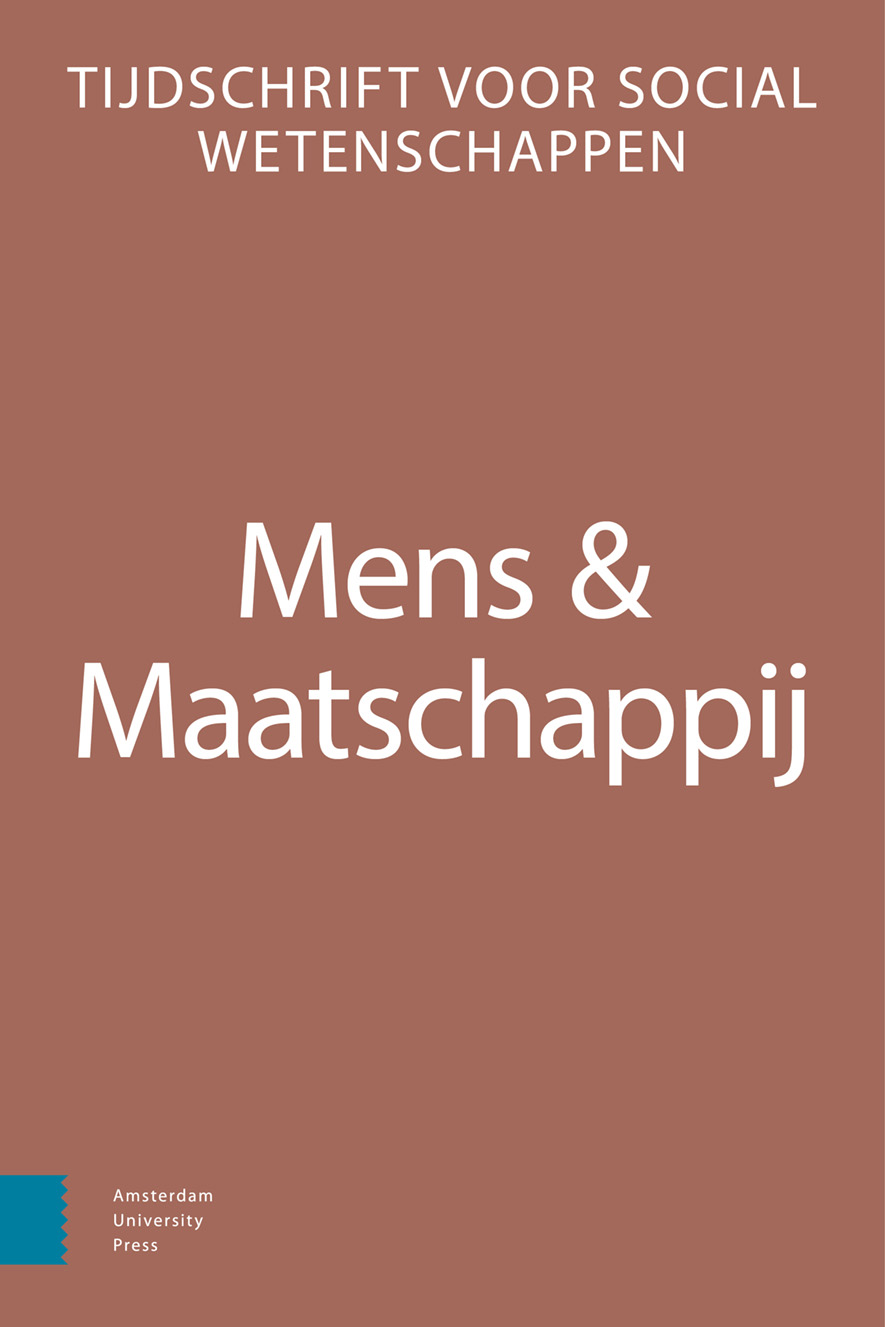- Home
- Publications
- Mens & Maatschappij
- Previous Issues
- Volume 97, Issue 3, 2022
Mens & Maatschappij - Volume 97, Issue 3, 2022
Volume 97, Issue 3, 2022
-
-
Terug naar Bonger
More LessAuthors: Wout Ultee, Wil Arts & Henk FlapAbstractBonger revisited. On a false start and a sudden full speed ahead in Dutch sociology
Our tentative hypothesis is that institutionalization of an academic discipline, for example by way of university chairs and disciplinary training schools, contributes to scientific progress. Yet, although Bonger contributed to all of sociology’s three main problems (cohesion, inequality and rationalization), his appointment as the first professor for sociology in the Netherlands, did not make for a successful take off. Institutions also have unintended negative consequences. Bonger remained isolated, the 1921 Academic Statute only allowed him to teach minor subjects (criminology and sociology), and he hardly attracted major students. Moreover, Dutch sociology suffered badly in WOII, losing, among other scholars, Bonger. A change in the Academic Statute after WOII led to nine disciplinary training schools at existing universities, and to 12 professorships in sociology. Of the newly appointed professors, only Kruijt and Van Heek developed a successful research programme driven by one main question broken down into several sub questions. In the decades after them, Lammers, focusing on human organizations, formulated two groups of related questions that contributed to the growth of sociological knowledge.
-
-
-
Een steeds rijker geschakeerd palet aan kennisbronnen voor de empirische sociologie
More LessAuthor: Pearl A. DykstraAbstractAn increasingly rich palette of knowledge sources for empirical sociology.
Over the course of the twentieth century, articles in Mens & Maatschappij showed a shift from primarily conceptual treatises, towards more theoretical-contemplative pieces, followed by a strong focus on empirical-theoretical papers. Surveys have become the dominant data collection method, but their form has changed over the years, and there is a trend towards enriching survey data with big data. Looking towards the future, researchers see expanding opportunities to carry out mass online experiments, or to construct samples in which respondents are known to be related to one another to a specified degree. With the increasingly rich palette of knowledge sources at their disposal, sociologists are better able to answer new kinds of questions, such as those about processes that take generations to develop, about how beliefs spread, or about how deeply divided our society is.
-
-
-
Vooruitgang in de Nederlandse sociologie
More LessAuthor: Frank van TubergenAbstractProgress in Dutch Sociology: The Importance of Diversity and Data Availability
How has Dutch sociology developed in its centenary? What are the most important changes? Nowadays, sociologists can download publicly available, cross-national survey data in a few minutes on their computer. This practice, which greatly advances theoretical and empirical insights in sociology, is easily taken for granted. Behind this practice, however, are important data innovations. In this overview article, I sketch how innovations in sociology have led to more and more different data sources on the menu of sociologists, that data has become qualitatively better, and that data has been made much more available to third parties. It is this data revolution that has allowed sociologists to describe and explain social reality better than before, and that the relevance of the discipline to society has gained momentum.
-
Volumes & issues
Most Read This Month


